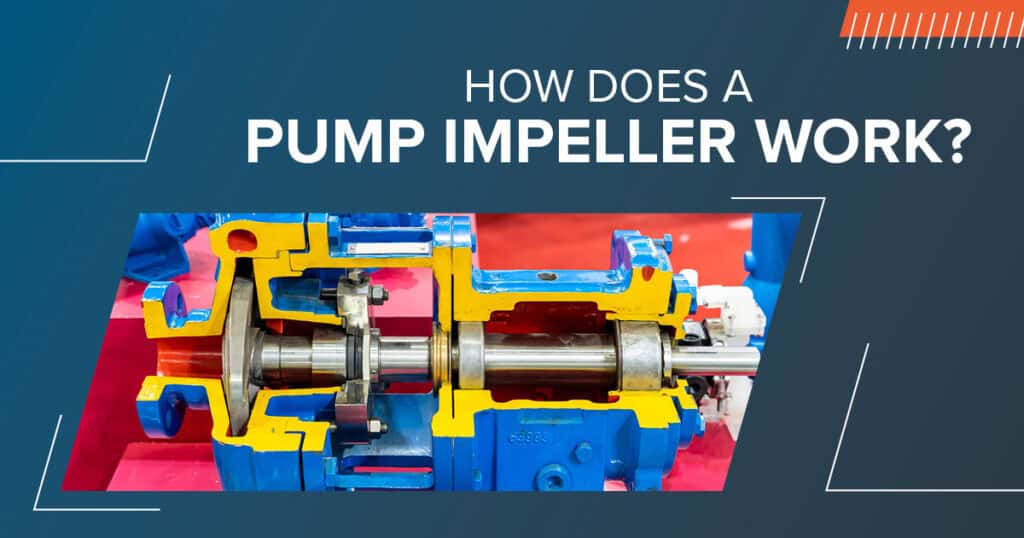The impeller is a critical component in centrifugal pumps. It is responsible for the efficient movement of fluid through the pump system. As an operator, it is beneficial to understand how the impeller works. In this article, we will explore the impeller’s design, operational principles, and the different types of impellers available.
Impeller Basics
The impeller features vanes that extend radially from its center. It is typically encased within the pump housing. The primary function of an impeller is to convert the mechanical energy from the pump’s motor into kinetic energy in the fluid. As it rotates during operation, this conversion is achieved. This motion creates a centrifugal force that propels the fluid outward from the center of rotation toward the outer edge of the pump casing.
As the fluid exits the impeller and moves into the wider pump casing, its velocity decreases. The kinetic energy is then converted into pressure energy. This process efficiently moves the fluid through the pump and out of the discharge port.
Types of Centrifugal Pump Impellers
Impellers come in several types, suited for various fluid transfer applications and equipment designs. Here are some of the most common impeller designs:
- Closed Impellers—These impellers have vanes enclosed on both sides by shrouds, making them ideal for high-pressure applications. They are efficient and prevent fluid leakage. However, they can also be prone to clogging. Cleaner fluids are recommended for closed-impeller pumps.
- Semi-Open Impellers—With one side of the vanes exposed, semi-open impellers can handle fluids with some suspended solids. They are easier to clean but slightly less efficient than closed impellers.
- Open Impellers—These impellers have vanes that are entirely exposed. They are best for handling fluids with high levels of solids or high viscosity. While they are the least efficient, they are easier to maintain and less likely to clog.
Factors Affecting Impeller Performance
Several factors influence the performance of a centrifugal pump impeller. The design and size of the impeller directly impact the pump’s flow rate and pressure. Higher motor speeds can increase the impeller’s velocity, which generally increases the pump’s flow rate capabilities. Additionally, the clearance between the impeller and the pump casing affects performance. Tighter clearances can lead to increased pressure and flow rate but may also cause accelerated wear and damage to the impeller.
Impeller Maintenance and Replacement
Regular maintenance of the impeller is crucial to ensure the efficient operation of the pump. This includes inspecting the impeller for wear and damage, cleaning to prevent clogging, and replacing the impeller when necessary. Replacing an impeller can be complex and may require disassembling the pump. It is essential to use the correct replacement impeller size and type. It is recommended to follow the manufacturer’s guidelines to ensure optimal performance and safety.
DXP Pacific’s Impeller Services
If you operate a pump system, DXP Pacific is here to help. We can assist with all your pump selection and management needs. This includes finding the best impeller to meet your equipment and application. We also provide pump repair and maintenance services if you are experiencing issues with your centrifugal pump or simply want to be proactive about keeping your pump system running optimally. Contact us today to learn more.

